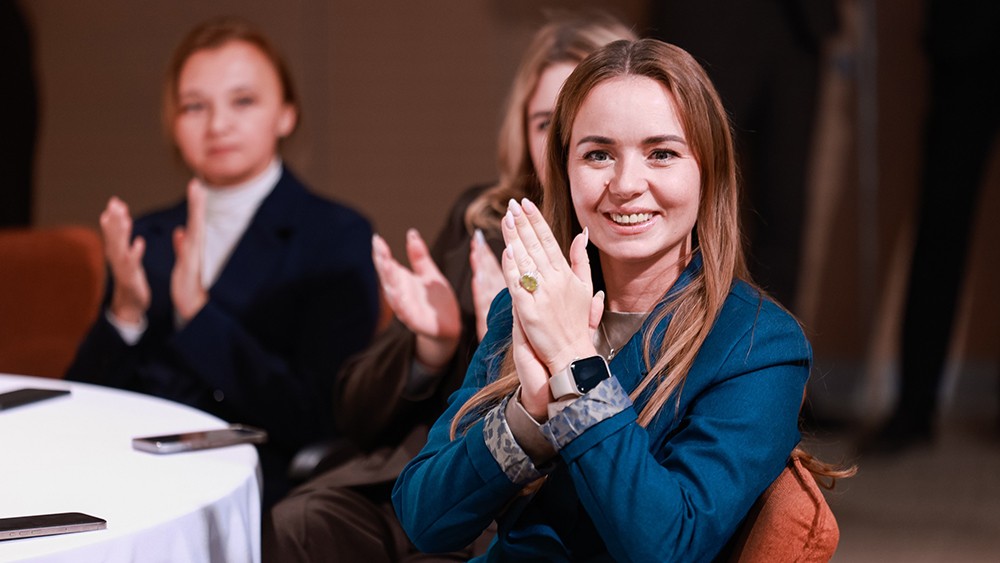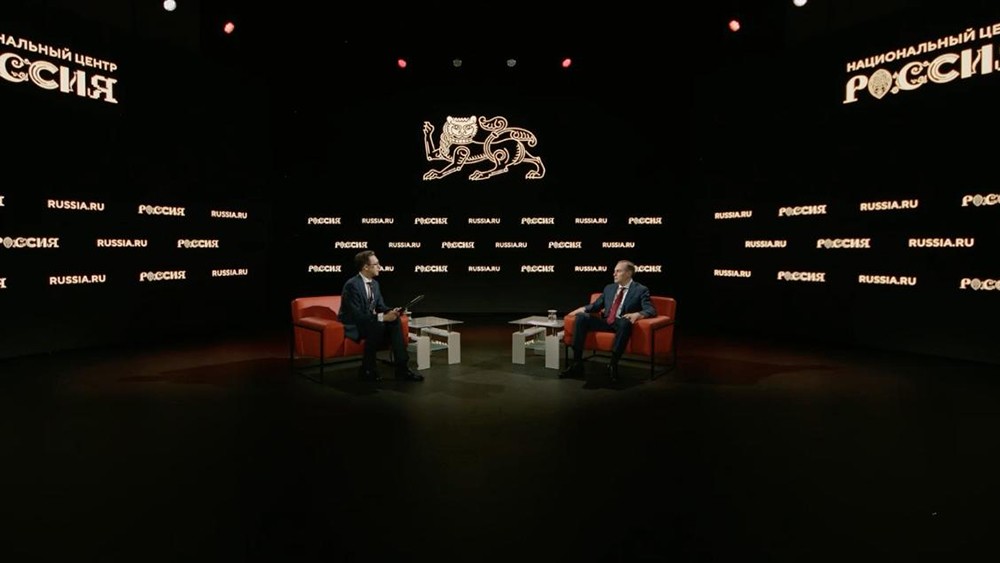Presentation session of the Open Dialogue "The Future of the World. New Platform for Global Growth" was held at the National Centre RUSSIA
More than a
hundred guests from 48 countries are participating in the Open Dialogue "The
Future of the World. New Platform for Global Growth," taking place from
April 28 to 30 at the National Centre RUSSIA.
Deputy
Chief of Staff of the Presidential Executive Office of the Russian Federation,
Maxim Oreshkin, spoke at the session-presentation of the Open Dialogue. He
talked about the platform for global growth and Russia’s role in shaping the
future, emphasizing that under current global conditions, it is Russia and the
BRICS countries that are becoming the centre of unification for world economies,
ideas, and cultures that define tomorrow.
"Moscow welcomes guests with optimism. This is not just a city — it is a place where ideas take shape, and meanings turn into action. BRICS does not unite countries against anyone — we unite for the future. For progress. For the common good. And in our system, no one makes decisions alone. The key is the principle of consensus. This is the true diplomacy of the future," Maxim Oreshkin emphasized.
BRICS
countries are developing rapidly and now account for up to 50% of the global
economy, noted Maxim Oreshkin. At the same time, he emphasized that at the
centre of all global processes and phenomena — including investment — there is
always the human being.
"When
we talk about the economy of tomorrow, we are talking about people. About
investing in people, in education, in culture. This is the foundation of
sustainable growth. Technology, finance, trade, personal development — all of
this is inseparable. We are not just discussing numbers; we are discussing the
kind of world our children will live in. Investment is not just money. It is
trust, structure, and strategy," he emphasized.
History moves in waves — every 30 – 40 years, the world enters a new cycle, and today we stand at the threshold of the next wave — the wave of countries that are shaping new rules of growth, said Maxim Oreshkin.
"Each wave of global growth is born on the basis of institutions — systems that create conditions for development. Today, Russia offers precisely such platforms. In September last year, we held an event that united not just countries, but hundreds of millions of people — the BRICS summit. It was global construction: of meaning and of cooperation," added Maxim Oreshkin.
The
importance of creating such platforms for multilateral interaction was also
emphasised by President of SDSN Jeffrey Sachs, who highlighted the significance
of a multipolar world:
"Multipolarity
means that the world has many centres of influence: the US, the EU, Russia,
China, India. By the way, I predicted that the African Union would also begin
to rise, and its role will grow in the coming decades. That is what
multipolarity is. We do not want one country to impose cultural values on other
countries. We need many religions, systems of values, cultures."
Jeffrey
Sachs also expressed warm feelings toward Russia and thanked the organizers for
the opportunity to participate in the Open Dialogue.
"It is a great pleasure for me to be in Russia. I first came here 55 years ago. Since then, I have always loved this country," said the expert.
Doctor of Economics and Professor at Complutense University of Madrid, Juan Antonio de Castro de Arespacochaga (Spain), invited session participants on a journey "Back to the Future: Towards a New Development Paradigm." The future of the world is development; the world does not stand still — it is in constant motion toward its goals and aspires to reach new heights, the expert noted. At the same time, he emphasized that achieving sustainable development in the future requires serious work on the mistakes of the past.
"The future belongs to the BRICS countries. Together with the Global South, they can bring about significant change. However, while looking to the future, we must also speak about the past in order to avoid repeating many mistakes. For example, we need to focus on the factors we lack — technological factors. Then we can build and create capabilities. That is, knowledge is not an external parameter, as previously believed, but an internal, endogenous one. And it has a positive impact on other factors of production, on the planet, on growth and development. BRICS has the opportunity to completely reshape the global environment by placing knowledge at the centre and working together with the Global South to achieve sustainable development," said Juan Antonio de Castro de Arespacochaga.
As part of
the Open Dialogue, 696 essays about the future of the world were collected,
written by authors from 102 countries in 18 languages, including Pashto,
Malagasy, Serbian, Greek, and others. The topic that drew the most interest
from authors was "Investments in Human Capital" (41%), followed by
"Investments in Connectivity" (24%), "Investments in
Technology" (22%), and "Investments in the Environment" (13%).
Expert pitch sessions were held for each of these topics, and based on their
results, the best essay authors — selected by world-class experts — were given
the opportunity to speak during the panel pitching session.
In total, participants in the Open Dialogue represent 48 countries from all continents of the Earth.








